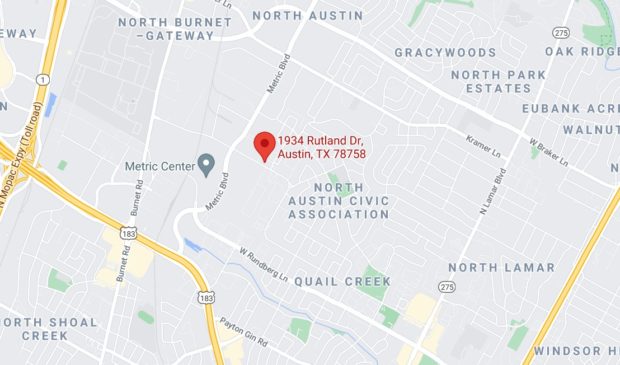Espero at Rutland offers hope for the homeless
Wednesday, May 26, 2021 by
Jo Clifton At next week’s meeting, City Council, acting as the board of directors of the Austin Housing Finance Corporation, is expected to approve funding for a 171-unit supportive housing development at 1934 Rutland Drive.
In building and operating Espero at Rutland, AHFC will partner with Caritas of Austin and the Vecino Group, a national low-income tax credit developer that is described in city documents as having capabilities including development, design, engineering, construction, and asset management.
Overall, the project and its programs are expected to cost about $40 million. Mandy De Mayo, community development administrator for the city’s Housing and Planning Department, expects groundbreaking on the project to be sometime in July and leasing to start in the winter of 2022 or ’23.
De Mayo described the Espero project as similar to the Terrace at Oak Springs, a 50-unit complex for the previously homeless operated by Integral Care.
Jo Kathryn Quinn of Caritas and housing consultant Jennifer Hicks met with De Mayo three years ago to introduce the Vecino Group, which has an expertise in “really low-barrier supportive housing,” she said. It is often very difficult for homeless people to find housing, not only because they can’t afford it, but because of tenant selection criteria. Many are excluded because of a criminal history or eviction history, while others are disqualified because they are not sober. With the housing-first concept, people are given housing, and then they work on the other issues, De Mayo said. “This is one of the solutions we know we need locally.”
Espero will offer 101 units dedicated to people receiving a continuum of care – effectively coming off the streets. According to city backup material, 96 of the units will be rented to people earning 50 percent of the median family income; 48 to those earning 30 percent of median family income; and 27 units for people earning 60 percent of median family income.
However, as De Mayo explained, people coming off the street frequently have no income at all. The city will provide an operating subsidy for 50 of the units.
“We pay the difference between what (the tenants) can pay and the market rate,” she said. “A lot of folks won’t have any type of income and then Caritas will help them apply” for whatever they may be eligible for. She described the city’s payments as “an ongoing subsidy (that) enables the operator to keep the lights on.”
The city will also provide two different kinds of bond funding. Last summer, the AHFC board approved $8.5 million in general obligation bonds and the city launched its local housing venture.
In addition to the GO bonds, which are backed by the city, AHFC will issue what are called private activity bonds. As general partner, AHFC is able to share its non-taxable status with the venture. These are not created by the city and the city has no obligation to pay them off.
De Mayo said one of the unique powers of the housing finance corporation is its ability to issue debt. Typically, a bank buys that debt and it is paid off by rent. Even though they are called private activity bonds, such bonds are always issued for a public benefit, and typically cover 50 to 70 percent of the cost of the development, De Mayo said.
Although the developer applied for 9 percent tax credits from the Texas Department of Housing & Community Affairs in 2020, the application was rejected. TDHCA describes those tax credits as “highly competitive.” However, the agency also offers 4 percent low-income tax credits and those are not awarded on a competitive basis. AHFC is counting on those tax credits to help make Espero at Rutland a reality.
In its application to TDHCA in 2020, Caritas stated, “Austin has a severe lack of deeply affordable housing with only 21 affordable rental units available for every 100 extremely low-income renters. This gap of deeply affordable housing leaves many working people unable to afford a place to live. People living at the poverty level are at a higher risk than most of losing their homes and experiencing homelessness.”
The Austin Monitor’s work is made possible by donations from the community. Though our reporting covers donors from time to time, we are careful to keep business and editorial efforts separate while maintaining transparency. A complete list of donors is available here, and our code of ethics is explained here.
You're a community leader
And we’re honored you look to us for serious, in-depth news. You know a strong community needs local and dedicated watchdog reporting. We’re here for you and that won’t change. Now will you take the powerful next step and support our nonprofit news organization?



